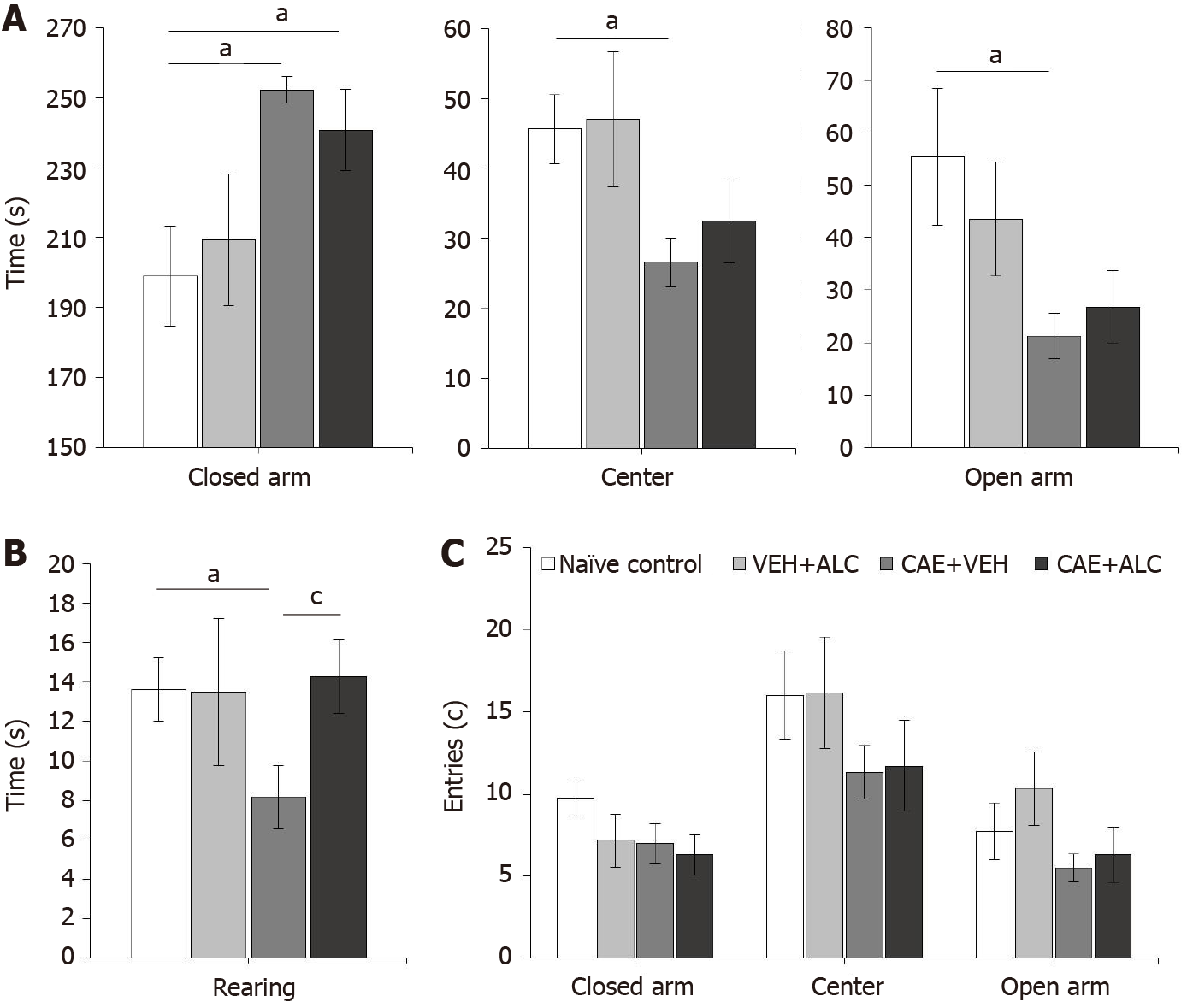Copyright
©The Author(s) 2021.
World J Gastroenterol. Mar 7, 2021; 27(9): 794-814
Published online Mar 7, 2021. doi: 10.3748/wjg.v27.i9.794
Published online Mar 7, 2021. doi: 10.3748/wjg.v27.i9.794
Figure 2 Anxiety-like behavior was measured in week 6 of caerulein-induced pancreatitis but acetyl-L-carnitine treatment only increased the number of rearing events.
A: Mice with caerulein- (CAE) induced pancreatitis spent significantly more time in the closed arm, and less in the center and open arm of the plus maze compared to naïve control animals. Treatment with acetyl-L-carnitine (ALC) had no effect; B: Mice with CAE-induced pancreatitis reared significantly less compared to naïve control animals. This was alleviated after 3 wk of treatment with ALC; C: No differences were detected between groups in the number of entries to the different zones of the elevated plus maze. n = 6/group; aP < 0.05 compared to naïve control; cP < 0.05 compared to CAE + ALC; two-way ANOVA with Newman-Keuls post hoc test. ALC: Acetyl-L-carnitine; CAE: Caerulein; VEH: Vehicle.
- Citation: McIlwrath SL, Starr ME, High AE, Saito H, Westlund KN. Effect of acetyl-L-carnitine on hypersensitivity in acute recurrent caerulein-induced pancreatitis and microglial activation along the brain’s pain circuitry. World J Gastroenterol 2021; 27(9): 794-814
- URL: https://www.wjgnet.com/1007-9327/full/v27/i9/794.htm
- DOI: https://dx.doi.org/10.3748/wjg.v27.i9.794









